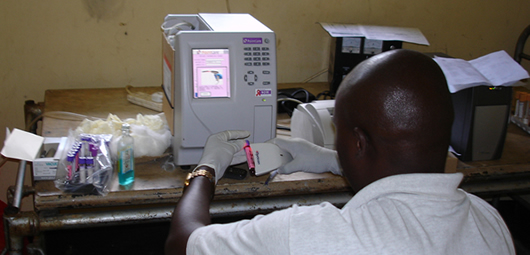The appropriate donation of equipment and/or consumables greatly contributes to the development of Bwindi Community hospital.
However, more of donated equipment goes unused. The end result is that the donation has essentially been dumped, which is more costly to BCH.
These Guidelines for Donation of Equipment and Consumables are intended to provide general guidance to our donors.
These Guidelines are based on;
World Health Organisation Guidelines for Healthcare Equipment Donations.
World Health Organisation Guidelines for Drug Donations.
Ministry of Health Uganda guidelines for drug donations
Installation and maintenance: The donation should come complete with all appropriate installation instructions and operating manuals. Ancillary equipment to ensure ongoing function (e.g. device to provide and/or regulate uninterrupted power for electrical equipment) should be supplied and fitted at installation. The donation should be fit for location use in Uganda.
Spare parts: A supply of commonly required spare parts (e.g. replacement bulbs, fuses, filters) should be included in the donation. If the lead time for a particular spare is 6 months or longer, then consideration should be given including this spare with the donation.
Appropriate personnel: BCH should have trained personnel able to use and maintain the donation. If not, the donor should provide appropriate training as part of the donation package.
Appropriate certifications: Donated equipment should be shipped with a recent biomedical certification, and should have a minimum one-year guarantee.
Shipping regulations: All donations should be packed and shipped in accordance with international shipping regulations.
Shipping documentations: Shipping documents should clearly list everything in the shipment and note that it is a donation. To reduce the risks of delays in delivery and demurrage, documentation should comply with the Customs regulations of the republic of Uganda.
Shipping costs: Donors should be aware of, and meet where agreed, all possible costs associated with shipping (e.g. import taxes; transport from Customs to BCH.
Shelf-life: Donated consumables (e.g. IOLs; gloves; pharmaceuticals; syringes) should have a minimum of 18 months shelf life/sterility from date of dispatch of donation, or 12 months from date of arrival in Uganda.v
Donated drugs: Donated drugs should be on the Uganda’s National Essential Medicines List (failing this, on the WHO model lists of essential medicines).
Drug labelling: Donated drugs should be shipped with the following recommended minimum labelling; generic name or International Non proprietal Name (INN), manufacture and expiry dates, Name of manufacturer and batch number, dosage form (e.g. drops, tablets) and strength, and Storage condition.




